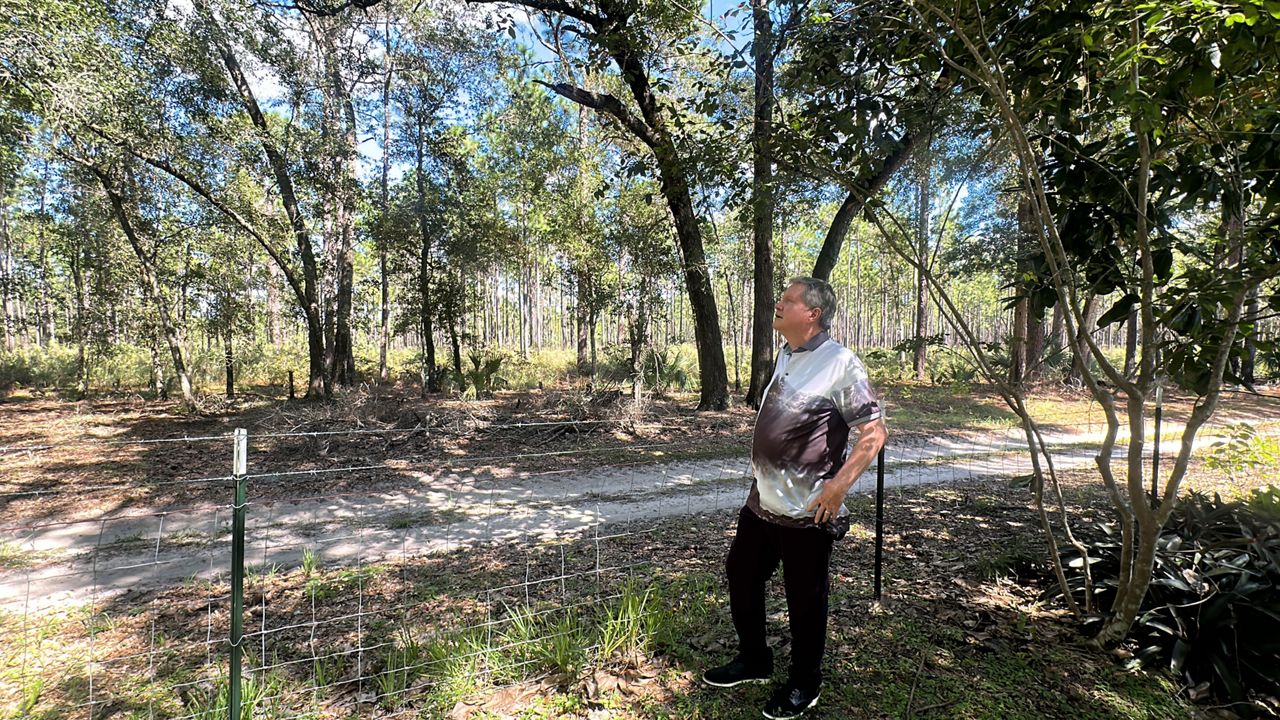ORLANDO, Fla. — For the first time in 10 years, commissioners with the Florida Fish and Wildlife Conservation Commission (FWC) approved a regulated black bear hunt set to start on Dec. 6.
What You Need To Know
The Florida Fish and Wildlife Conservation Commission (FWC) approved a regulated black bear hunt set to start on Dec. 6
Groups of bear-hunt opponents criticized the decision and entered the permit lottery to prevent some bears from being hunted
Some hunters expressed frustration after failing to secure a permit to hunt the bears despite multiple applications
Unused tags must be returned to the FWC 14 days after the hunt ends
Chuck O’Neal, president of Speak Up for Wildlife, opposes the bear hunt. “Well, ultimately, it’s a tragedy. It’s a failing of the FWC to properly look at the science, analyze the population figures and come up with a course of action,” O’Neal said.
FWC officials said they received more than 163,000 applications, with over 49,000 of them from the central region. The quota allocated by FWC to the Central Bear Harvest Zone was 18 permits.
“We’re about to see another nightmare. It’s hard to say, but I’ve seen it. I was there in 2015,” O’Neal said, referring to the last bear hunt which ended early after the quota was reached in the first two days.
This time a total of 172 permits statewide were made available through a random lottery system. Applicants 18 years old and older could apply as many times as they wanted, paying $5 per application.
O’Neal said thousands of bear-hunt opponents, including some members of their organization, came up with an idea to spare some bears — to enter the lottery to secure permits but not use them.
“Oh, I have a lot of people who never thought they were going to be licensed hunters who are now licensed hunters and have entered the lottery and sequestered between 40 and 50,” he said.
But others, like Volusia County resident and hunter Daniel Lavesque, were hoping to get a permit for this bear hunt.
“I was intending on the bear hunt in 2015, and they closed it before I had a chance to hunt. So, I was hopeful that I would have the opportunity,” Lavesque said.
Despite submitting three entries for the hunt, he still wasn’t able to secure a permit. “I didn’t win, I don’t even know where I ended up down the line,” he said.
Lavesque said FWC should draw again and make it mandatory for those who got the permits to participate in the bear hunt.
“And the person that decided to buy bear tags for no other reason to save a bear. There’ are plenty of hungry kids in the world and there’s plenty of charity organizations. I would put my money there,” he said.
The commission said the goal of the regulated bear hunt is to manage population growth rates in areas with the largest bear subpopulations.
“There’s a whole lot of bears in the state of Florida. This hunt, so everybody is clear, is insignificant to the bear population, it’s not going to control the bear population. But it will give outdoorsmen and hunters alike the opportunity hunt these animals that they have not been able to hunt in I don’t even know how long,” Lavesque said.
FWC said only one nontransferable permit would be issued per person, and permits cost $100 for residents and $300 for nonresidents. The goal is to ensure permits go to those who plan to hunt.
“The goal is to put the permits in the hands of those who will use them for hunting. We have heard that some groups opposing the hunt might potentially purchase permits. We have not seen this having an impact on previous hunts. We will collect and evaluate data that will be used to shape future hunts, such as the number of unused permits and hunter success,” FWC Communications Director Shannon Knowles said in an email.
FWC officials say the money paid for permits will be used for conservation. O’Neal said they’ll continue to push for ways to manage the bear population that don’t involve hunting.
“I have a plea to the FWC. You have $817,000. Solve the problem. You know how to do it. Garbage management. It’s not rocket science. Go back to the drawing board. Solve the problem,” O’Neal said.
The bear hunt will take place from Dec. 6 – Dec. 28. Unused tags must be returned to the FWC 14 days after the hunt ends.

